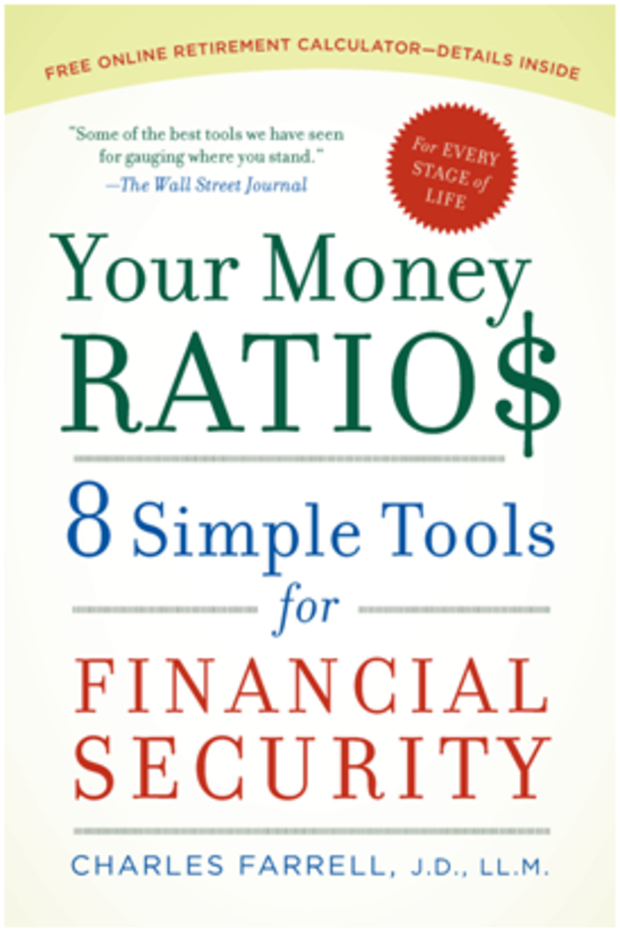Your Money Ratios: Are You Saving Enough to Retire?
In his new book, Your Money Ratios, MoneyWatch contributor Charlie Farrell provides a set of formulas to help readers manage their savings, debt, investment and insurance decisions. And when it comes to savings, you ultimately want to accumulate about 12 times your pay in retirement assets. At that point, you're in a position to retire on about 80 percent of the income you were making before retirement. In this excerpt, he explains how to get to 12 times pay.
If you look at your retirement account, you might be wondering how you will ever get to 12 times pay. You might be doing a quick calculation in your head thinking that if you save 12 percent of pay each year, it will take roughly eight years to get to one times pay. If you need to do that 12 times, you will need 96 years worth of savings! But you don’t need 96 years of savings. You only need about 35 to 40 years.
The reason: You have a partner in your journey from laborer to capitalist, called compound earnings. Over your lifetime, the odds are the compound earnings on your money will actually add far more than you will add through your savings each year. In the beginning that doesn’t seem to be the case, but your finances hit a tipping point at about two times pay.
After you have saved two times your pay, the earnings from your capital will generally add more to your total wealth than the amount you save each year. This is when your wealth starts to accelerate. Your focus should be on getting to two times pay. Once you reach that point, you will see positive results much faster.
Add It Up
Assume you earn $100,000 a year and are saving 12 percent of pay. In your first year of savings you add $12,000 to your retirement account. You get a 7.5 percent return on that money, which is $900. Thus, you added $12,000 through your savings and your savings added $900 through the earnings. The total addition to your personal capital that year was $12,900. At this point in your life, your savings rate has the biggest impact on your wealth.
Now assume you have been saving for about 10 years and you have $200,000 in your retirement plan, or two times your annual pay. If you get a 7.5 percent return, the earnings are $15,000. This exceeds your savings of $12,000. In this year your wealth increased by $27,000, and more than half of that came from earnings on your capital. After this point, the earnings will be the biggest contributor and your capital-to-income ratio should begin to grow very quickly.
Power of Compound Growth
Think about what happens when you are at six times pay, or $600,000. You are still saving $12,000 a year, but your earnings at 7.5 percent would be $45,000. Now you’ve added a total of $57,000 to your capital in one year, which is the equivalent of almost five years worth of savings. This is the amazing thing about capital: It creates more capital. The more you have, the easier it is to accumulate more.
Over a 40-year savings cycle, your ending account value will likely consist of about 30 percent contributions and 70 percent earnings on those contributions. That is the incredible power of compound growth on your capital. If you end up saving $1,000,000 for retirement, about $300,000 or so will consist of your capital, while the other $700,000 will be the earnings on that capital. That is why you should not be intimidated by the large CIR figures. You don’t have to contribute all of that money into your retirement plan. You only have to do about 30 percent of it, and the financial markets should help with the rest.
Excerpted from Your Money Ratios: 8 Simple Tools for Financial Security, by Charles Farrell, J.D., LL.M. Copyright 2009 by Charles Farrell, J.D., LL.M. Reprinted by arrangement with Avery, a member of Penguin Group (USA), Inc.
More on MoneyWatch:
